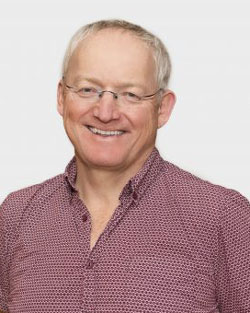Professional athletes subjected to unjustified collection of personal data
- 3 mins read

The degree of personal surveillance and body monitoring currently tolerated in professional sport may be permitted in community sports and other workplaces if the current status quo of collecting excessive personal data remains unchallenged, according to a leading group of experts.
As some of the world’s great sports enthusiasts, Australians might think they know about the role athlete data plays in professional sport.
But as sports fans, not just in Australia but around the world, watch their favourite athletes in action, how many of them are aware of the full extent of personal information being collected on and off the field, from sensor and video-based monitoring of athlete’s bodies during competition and training, to the intimacies of mental health, sleep quality, food intake and menstruation?
A new discussion paper released today, by the 12-member Expert Working Group convened by the Australian Academy of Science and the University of Western Australia’s Minderoo Tech & Policy Lab, says the growth in personal information collected about Australian professional athletes has outpaced the scientifically proven benefit to players, with the number of parties interested in this information – especially commercial parties – dramatically shifting the risk vs reward ratio against the athletes.
The discussion paper seeks to start a national conversation to identify gaps and potential risks related to sports data governance across the major football codes, basketball, netball and cricket in Australia. The working group says legal and ethical guardrails and a significant uplift in literacy and governance are necessary to ensure that athletes and their rights are protected and promoted, both in their own interest and in the public interest.
The group focused its attention on professional sport as the frontier of human monitoring but expressed concern that there is increasing uptake of these practices and technologies in junior sports and development pathways.

Led by co-chairs Associate Professor of Law and Technology Julia Powles and Professor of Artificial Intelligence Toby Walsh FAA and domain experts in sports science and sports governance, the group found collecting personal information on and off the field is now so commonplace that it is simply a matter of routine.
Many athletes and the broader public are unaware of how expansive and invasive the practice has become, prompting the question: what are we really measuring and why?
Associate Professor Powles said there is an alarming distance between how sports currently manage athlete information and existing legal requirements.

“Athlete data collection is almost completely unregulated, leaving it open to serious risks including privacy and security breaches, commercial exploitation, and misuse that impacts on careers and livelihoods,” said Associate Professor Powles.
“This is all the more startling when assessed against the minimal gains this powder keg of data delivers, in terms of improving player performance, development and wellbeing.”
Professor Walsh said the team was eager to initiate a discussion on the necessary limits to be placed on data collection and use in professional sport to avoid exploitation of athletes.
“With no disincentives and limited perceived risk around amassing ever-more data, accompanied by speculative promises that machine learning and future technologies will reveal novel insights, many sports currently have more data than they can demonstrate is useful,” Professor Walsh said.
The conclusion of the Expert Working Group is that Australia has a historic opportunity to set forward-looking practices for sports data governance, including legal, organisational and ethical limits around athlete data collection and use.
The Australian Academy of Science acknowledges support from the Minderoo Foundation’s Frontier Technology Initiative and the UWA Tech & Policy Lab for this project.
Launch event
6pm, 13 April 2022
The discussion paper is being launched at an event that is bringing together experts in professional sport, sport science, artificial intelligence, law, and governance to discuss the issues raised in the paper. The panel discussion will be chaired by renowned sports broadcaster Tracey Holmes.





